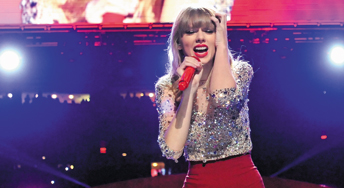Ways of Rebelling Ways of Rebelling
Who needs to be at peace in the world? It helps to be between wars, to die a few times each day to understand your father’s sky, as you take it apart piece by piece and can’t feel anything, can’t feel the tree growing under your feet, the eyes poking night only to find another night to compare it to. Whoever heard of turning pain into hummingbirds or red birds—haven’t we grown? What does it mean to be older? Maybe a house without doors can still survive a storm. Maybe I can’t find the proper way to rebel or damn it, I can’t leave. I want to, but you grow inside of me. And as I watch you, before I know it, I’m too heavy, too full of you to move. Maybe that’s what they meant when they said you shouldn’t love a country too much.
May 15, 2013 / Books & the Arts / Nathalie Handal
Rome’s Cassandra: On George Weigel Rome’s Cassandra: On George Weigel
The neoconservative leading the fight over the legacy of Vatican II in the American Church.
May 15, 2013 / Books & the Arts / Paul Baumann
Suet Suet
It turns out I was killing the birds. I gave them what they wanted, what they craved: suet packed with seeds, hung swinging on the sycamore with chains. Suet brought the downy, the bellied, brought small clinging birds from the sadness of the woods. It fattened them. It readied them for winter. But with spring came the melting world: too rich, too much weakened their bones. And snapped them. You were light as a whisper when you lay on me. I ran my fingers over your chest as though I were dressing you in air—the only clothes I would ever want on you. Still, the mockingbird wants it the most, diving at the other birds, driving them away, his gray black white reel of wings—so fierce, I can’t even take it back. I never knew he would be angry, this bird I’ve heard so much about, sung about in songs, the one I was supposed to buy my baby, the one who learned my baby’s cries. There’s sun on the porch and I want you so bad I think I might die. I have hurt you harder than anyone has ever. I don’t know what is right. I don’t know whose turn it is to beg, to cry, to be wronged, to be wanted. All I know is when you lay down on me, I felt no weight. And when you touched my breasts, they began to weep. And when I said I was sorry, sorry, I am so so sorry, you lowered your head to my chest and drank.
May 15, 2013 / Books & the Arts / Alison Stine

Deliriums and Descents Deliriums and Descents
In Metaphysical Dog, a poet continues his unending, obsessive arguments with himself.
May 15, 2013 / Books & the Arts / Robert Boyers

In Our Orbit In Our Orbit
Victor Navasky’s The Art of Controversy: Political Cartoons and their Enduring Power
May 15, 2013 / Books & the Arts / John Palattella
Consumer Climates Consumer Climates
Climate change and its political repercussions.
May 8, 2013 / Books & the Arts / Michael T. Klare

Adventures in Neurohumanities Adventures in Neurohumanities
Applying neuroscience to the study of literature is fashionable. But is it the best way to read a novel?
May 8, 2013 / Books & the Arts / Alissa Quart

Nietzsche’s Marginal Children: On Friedrich Hayek Nietzsche’s Marginal Children: On Friedrich Hayek
How did the conservative ideas of Friedrich Hayek and the Austrian school become our economic reality? By turning the market into the realm of great politics and morals.
May 7, 2013 / Books & the Arts / Corey Robin

Red Country: On Taylor Swift Red Country: On Taylor Swift
Profligate, prolific, towering over the landscape: Is Taylor Swift China?
May 7, 2013 / Books & the Arts / Joshua Clover

With Friends Like These: On Pakistan With Friends Like These: On Pakistan
Ahmed Rashid’s gloomy, essential account of the divisive US-Pakistan alliance.
Apr 30, 2013 / Books & the Arts / Christian Parenti
